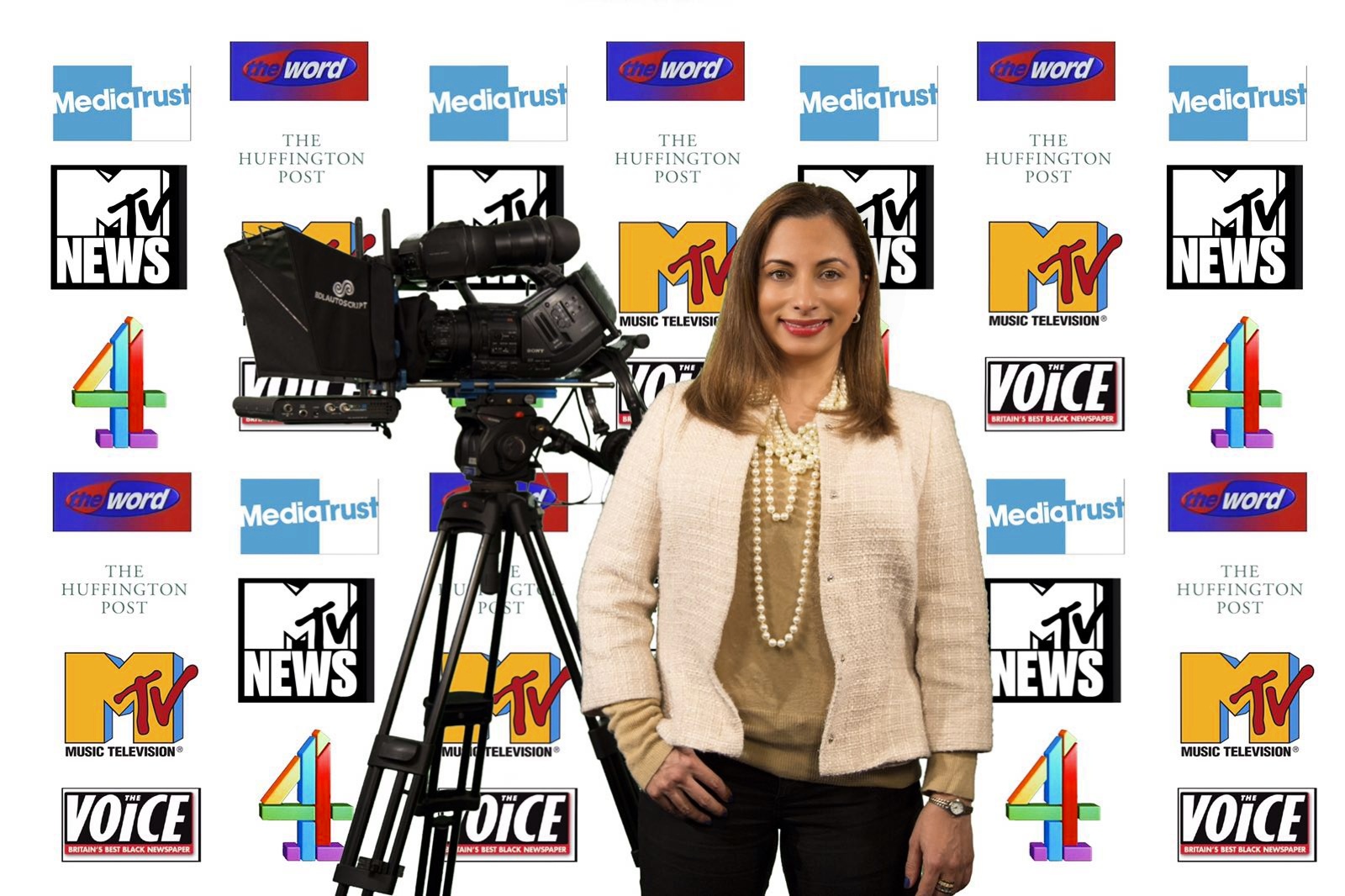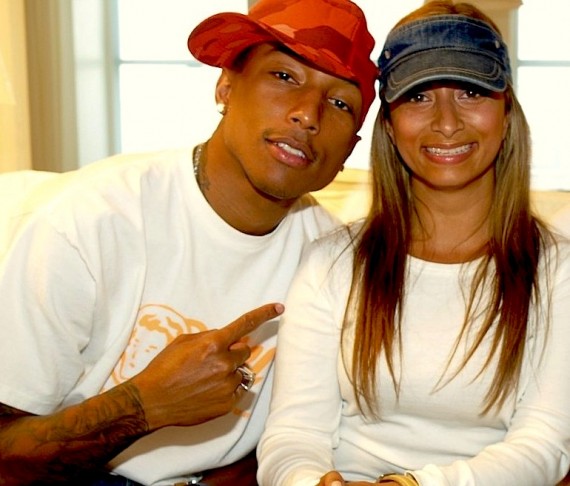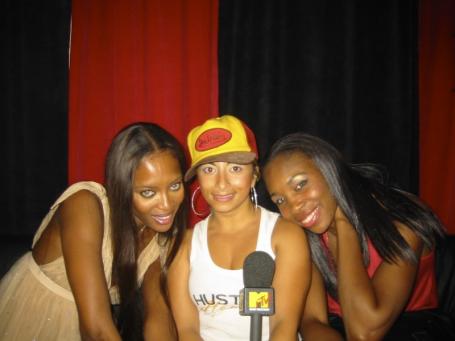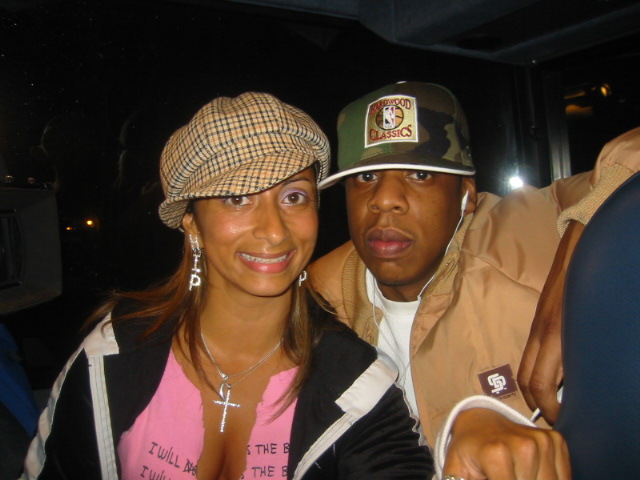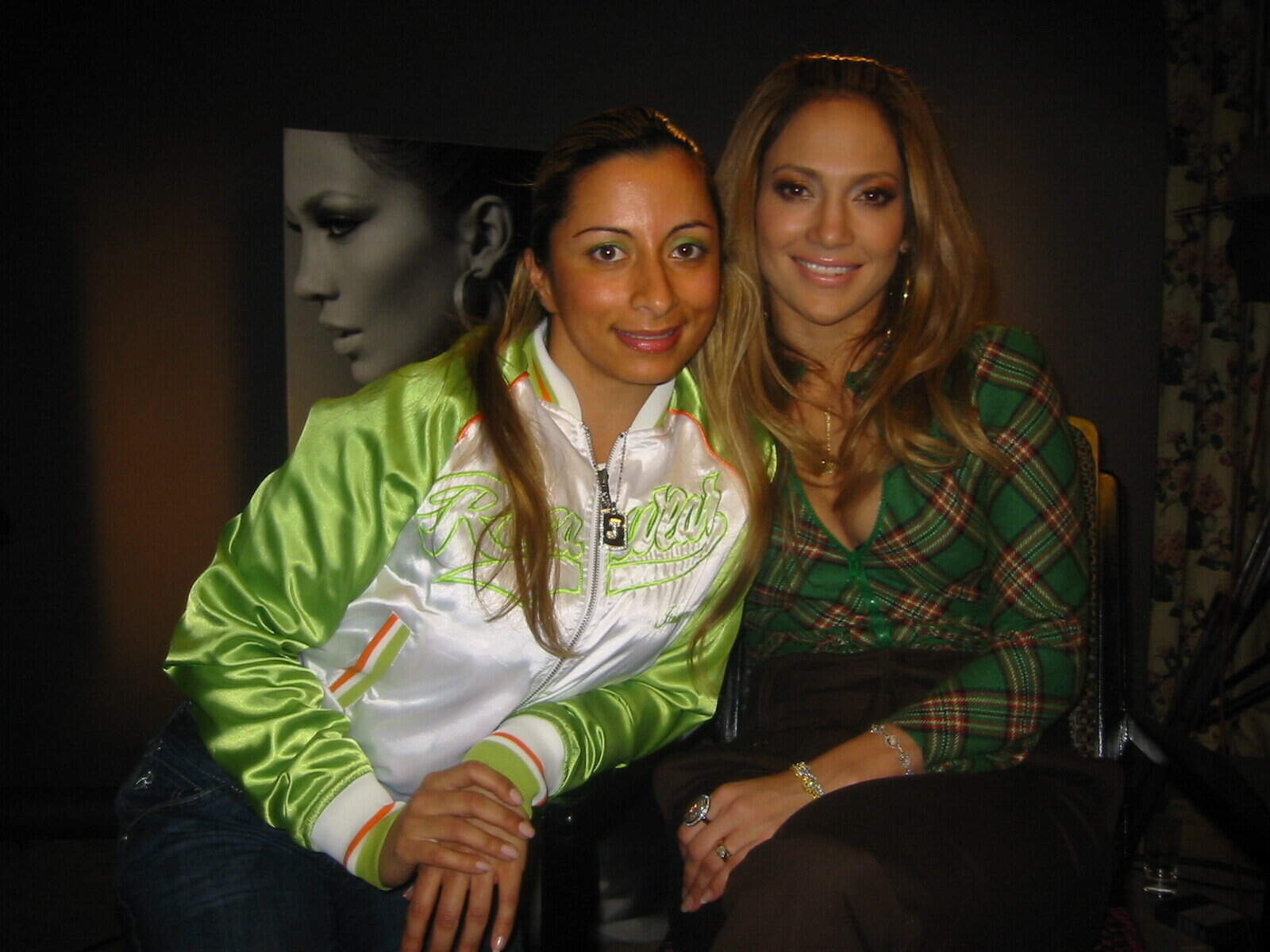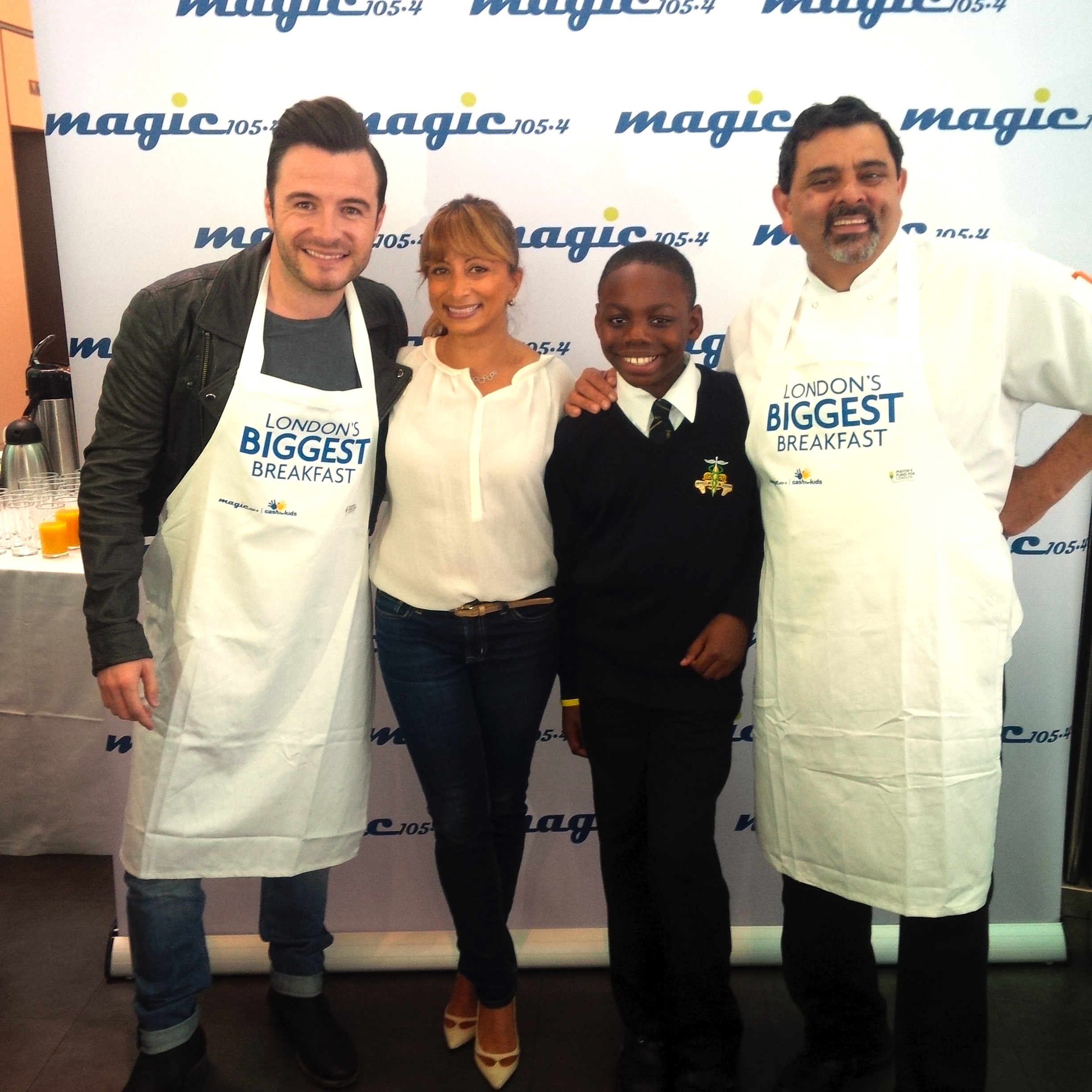Jasmine Dotiwala is a dynamic woman who defines herself as a “global fly girl with vision.” She’s one of today’s most loved international media mavens, with an extended background in TV, print/digital press and radio.
Based in West London, Dotiwala has been involved in a variety of major news platforms including MTV News Europe/UK, The Voice newspaper (Britain’s largest Black newspaper), ChoiceFM, BBC Radio London and the Huffington Post UK. She’s also been a Panel Committee Member for the Royal Television Society, MOBO Awards, MTV Diversity Council and the BRIT Awards Diversity Panel.
Briefly on her history in music and film, she gave Mary J. Blige her first UK interview in the 90s, went record shopping with Aaliyah and Jodeci, and reached global news networks with her Snoop Dogg interview during his murder trial. Dotiwala is also very notable for her work with MTV executive producing their classic show MTV Cribs in Europe.
She’s truly a “World Wide Woman,” with a background of global coverage in multimedia entertainment. Dotiwala has covered some of the most legendary artists in history, contributed to major news publications and produced for some of the biggest media networks. Check out her official website here.
What exactly inspired you to begin your profession and when did you officially start?
As a young latchkey kid, I would always be so involved in all the after school clubs and activities in the local area. In the 80s when the boys around my way were breakdancing in Covent Garden and needed a girl in their crew, I was there. Electro beats like “Planet Rock” ‘’Looking For The Perfect Beat” by Afrika Bambaataa & Soulsonic Force and Shannon‘s “Let The Music Play” were the kinds of tracks that first stole my heart and made me fall in love with Hip Hop culture, and of course I collected The Source and VIBE magazines religiously, reading interviews by Kim Osorio and Kevin Powell (I still have my fave covers at home!).
After school and university I hustled my way into a job with one of the biggest TV companies in the UK at that time called Planet 24, and was a runner on their Big Breakfast show. My big official start was when the same company were looking for a presenter for the biggest youth culture TV show of the time called The Word, and I was asked to stand in with the finalists to make up the numbers. Little did I know I was really being auditioned, and a fortnight later got the call from the bosses (Sir Bob Geldof, Charlie Parsons and Lord Waheed Ali), “pack your desk up, get a lawyer, leave the building….you’re now the new host for The Word.” I thought I was being fired!
The Word was a ground-breaking music and youth culture show (Madonna, Nirvana) and saw me traveling the world to interview music and movie stars. As Hip Hop and R&B was in its infant years and no one else on my TV crew cared about it, I got to interview new acts like Jodeci, Mary J. Blige, Cypress Hill, Snoop Doggy Dogg and more just as they were starting out.
What has been the biggest highlight of your career so far and why?
There have been so many highlights. A few stand out: when Snoop was released from court after his murder trial, I was the only reporter to chase him and his team into the car park for his interview upon release (the rest of the court reporters were all awaiting the O.J. Simpson trial verdict). My interview was synced all across the globe with my TV broadcasters branding in shot. That was a big moment.
Other highlights include my time as an MTV News host where I interviewed everyone and anyone. I made MTV flagship shows like Cribs, Making The Video and Diary Of… with all your favourite Hip Hop and R&B acts from Mariah Carey, JAY Z, Puffy, Snoop, Sean Paul, Spice Girls, The Fugees, Busta, Eminem, Destiny’s Child and more. When these shows rate number one for MTV globally and the artist and record label come back saying they loved it and it was a unique TV show no-one had ever managed to get from the artist in the past, that’s always amazing to hear.
In the UK, Black British music never really had an equal playing field when I first started out. But as my peers and I rose through the industry within TV, radio, print press, branding and film, we worked together, under the radar, to give more established and new Black British acts a push in the mainstream. If a new act needed a push one of us might use them on a film soundtrack, another would add to the playlists at radio, another would make TV profiles on them, another would put them forward for a sports branding advert until that act was everywhere and the mainstream couldn’t help but take note, and predictably jump on the trend bandwagon. So in recent years, it’s not so unusual to see British urban music acts like Tinie Tempah or Dizzee Rascal featured as prominently as British pop stars on mainstream press.
How has your life changed since you began your journey and what are you expecting next?
It’s changed a lot. When I started out my career was just showbiz and music, and focusing on materialistic rewards. Now I’ve grown up it’s more diverse with politics and social issues at the fore, and focusing on what positive change I can leave as a legacy. I’ve always spread the love though and any perks of the job, whether that be music tickets or fancy parties, I have always shared with my nearest and dearest. Family first, right?
Also, you can’t be decades deep into your life and not have learned enough to change. No-one starts out perfect. I have learned to pick my battles wisely, to know how to negotiate in the streets and the suites, to dream big and ensure I can deliver if I say that I can.
Now one of my main jobs is to champion new, upcoming media talent into the industry via a TV/Radio/Digital program for young Londoners called LONDON360. I’m keen to show the media industry can be diverse and young people from disadvantaged and diverse backgrounds can be just as good if not better than your average. Within six months I ensure they’re trained to an extremely high standard (shooting, editing, reporting), then help place them in paid jobs in the industry where they can flourish, not simply be the diversity token tick-box.
What characteristics do you believe are important to have in order to be successful and why?
Ultimately, its about whether you can get the job done. In entertainment if there are hundreds of journo’s globally interviewing talent, how can you ensure you and your interview stand out? Can you multi task? Do you understand digital marketing? You have to stay ahead of the game at all times and move with the cheese. If you aim to work for a big corporate brand ensure you are uber professional at all times, verbally, in writing and visually. It’s a tough industry. You need to have a tough skin, organize your time with military precision and be used to pressure and dealing with the unknown daily.
For the young generation inspired by your achievements, what advice could you offer to those pursuing a career in the entertainment industry?
Being a media journalist is the best job in world! One minute you can be standing on a red carpet of a film premiere, the next flying alongside a Hollywood star on a private jet, interviewing a politician at the House of Parliament or having a great conversation with Bob up the road. But don’t get it twisted, the glamour is 10 percent of a job that’s 90 percent hard work and long days of shoots, transcribing, editing and more.
Also, aim high! Someone once said, “it’s better to aim for the stars and miss, than aim for s*it and hit.” You are the average of the five people you surround yourself with, so try and ensure your peers are fun, successful people with a positive energy. Ultimately, be nice and make yourself so unique there isn’t another you out there.
What prominent individuals in entertainment would you compare yourself to and why?
I think comparing people can feel negative. We should only compete with ourselves. How can I be better this week than I was last? I have a lot of respect for women on the news frontline, like the UK’s Lindsey Hilsums, Cathy Newman (Channel 4 News) and Kay Burley (SKY News).
Years ago, when I was regularly on the radio, some used to call me the UK Wendy Williams but whilst I respect her hustle, I wasn’t really that similar to her. Then during my MTV News days when I was in the States, people used to hear my British accent and be like “oh, you’re like Downtown Julie Brown?” I think I’ve made a unique niche for myself and wouldn’t compare myself to others, but I do see that the younger ladies coming up behind me will be so much more incredible as they’ve learned to be good at multiple skills, and that can only make them future leaders and winners. I can’t wait to see them win.
How did you feel you contribute to the innovation of entertainment media, and what message are you trying to perceive from your influence?
I like to think I’ve shown that women in the music industry can have an opinion, be well-informed, strong yet feminine and deliver great results. Women in media and the creative industries are often overlooked whether for exec roles or simply for quotes in the media.
I’ve always been keen to show music stars are very influential role models and have valid opinions that youth follow and imitate, so in interviews I’m always keen to include off-music-topic themes. Hearing your favorite rapper /singer’s opinion on world politics and social issues is important to help engage the younger generation into power thinking.
I like to think I’ve helped contribute to the success of many of my music and showbiz peers because of what they tell me. I try to champion talent and ensure diverse genres and talents from the worlds of Hip Hop, R&B, Grime music and more have an equal playing field on a national and international platform. Woody Allen once said, “Eighty percent of success is showing up,” so let us show up.
Photo Cred: Nigel Gregory/Richard Pascoe
